








colleague,
First of all, I would like to wish you a very happy New Year!
We are deep into winter with all the challenges that it brings for our services, yet as I look forward, there is so much for us to be optimistic about in 2025.
We are continuing to make good progress on our quality, digital and hospital transformation programmes – you only have to visit the Royal Shrewsbury Hospital site to see the scale of work being undertaken. Even more is happening behind the scenes as we build our new clinical pathways. It is a lot of work and effort but it will be worth it. It will support better care for our patients and a better working experience for all of us.
Looking back on the last 12 months, a huge amount of improvement work has been happening across our wards

and departments, delivered alongside your day-to-day work. It is not easy when you are flat out, but I have seen how you put our patients at the heart of everything.
In this edition, we will bring you up to date on the progress we are making against the objectives in our Operational Plan. The plan addresses our biggest challenges and is helping to steer us forward on our improvement journey.
An incredible amount of transformation work is happening at pace across the organisation to improve urgent and emergency care. Improving urgent and emergency care is everyone’s responsibility and on page 4, we look at how our fantastic Same Day Emergency Care (SDEC)
Team has been successfully trialling new ways of working.
As a result of the improvements the SDEC Team has made, more patients are discharged and going home on the same day. Their determination to support timely care of our patients is at the very heart of our Stronger Together ambitions to support a positive urgent and emergency care experience for every patient.
Our digital systems have undergone a massive transformation since the beginning of 2024. Introducing CareFlow as part of the first phase of our Electronic Patient Record (EPR) was a massive step change for the organisation but one we needed to do. EPR is vital and will help us to improve our working practices and support
us to provide high quality patient care.
The digital transformation continues and on page 16 you can learn about the rollout of a new digital patient portal. This is a really exciting development for our patients as it will enable them to quickly and easily change their appointments. Learning from other trusts has shown that the portal can significantly reduce the number of ‘did not attends’ which means we can see even more patients.
It will also contribute to us becoming a financially sustainable organisation. Like others in the NHS, we need to ensure we deliver our financial plan while balancing the need to provide safe and effective care. It is the right thing to do.
Every penny counts and we now have in place a financial recovery taskforce working alongside our teams. You can read about the work the Recovery Team will be doing on page 8 and how it links to our Stronger Together ambitions. There are lots of things you can do to support us on
our route to financial balance, whatever your role. You are the experts in your area, so please speak up if you have ideas. We have already made great improvements, but we know there are more opportunities.
I would like to say huge congratulations to our finance colleagues who have been successful in scooping not just one, but two awards. They have been crowned Finance Team of the Year in the Healthcare Financial Management Association (HFMA) awards, and also took the Havelock Training Award too.
A key element of this was the work the team have done to spread financial awareness outside of finance departments, and with clinical colleagues. A fantastic achievement and testament to the pride and passion our Finance Team has to providing value for money.
I also want to say a huge thank you and well done to our Waste and Energy Team, and everyone who has played their part in helping us to streamline our disposal of clinical waste –

especially our colleagues in portering, cleanliness and housekeeping.
As a result, we have met and exceeded our national targets. This is fantastic as these efficiencies mean we have reduced our carbon footprint which supports our green ambitions and made substantial financial savings as part of our Stronger Together ambitions to become a financially sustainable organisation.
Thank you.
Jo Williams, Chief Executive
Our ambition is for every patient to receive high quality compassionate care and the best experience when using our urgent and emergency care services.
Through our transformation programmes, improvements are being made across the organisation to improve patient flow and reduce the time patients spend in hospital. We continue to make steady progress.
Our acute medicine teams at both the Royal Shrewsbury and Princess Royal hospitals have put in place improvements which have transformed the efficiency and effectiveness of our Same Day Emergency Care (SDEC) services.

The aim of SDEC is to provide timely care to medical patients who require emergency treatment but do not require overnight admission. The team rapidly assess and treat patients who can be safely discharged on the same day.
This improves patient care and experience and reduces pressure on the emergency departments (EDs), which is at the heart of our Stronger Together ambitions.
“By ensuring that patients are seen by the right senior clinician at the right time, and in the right place, SDEC helps to optimise the patient journey. The goal is for patients to receive care, be treated, and return home all on the same day, while maintaining a focus on quality, safety, and efficiency.”
Dr Shakawan Ismaeel, Clinical Director of Acute Medicine
The service receives referrals from various sources including ED, NHS111, the Care Co-ordination Centre (CCC), and the West Midlands and Welsh ambulance services. Through this multi-source referral system, SDEC ensures patients receive the right care without the need for unnecessary hospital stays.
The team has implemented a push/pull model.
The push element of the model allows patients referred directly from the ED to be treated in SDEC. These patients typically require short-term care and can be safely discharged the same day.
The pull element of the model is more proactive, with the SDEC team identifying suitable patients within the ED who might benefit from same-day care, even if they weren’t initially referred to SDEC. This approach ensures that patients are treated quickly and efficiently.
Since the improvements were put in place, SDEC has seen a steady rise in the number of patients treated away from the EDs. The introduction of acute medicine follow-up clinics for patients who require further tests or consultations after their initial treatment in SDEC has been a vital part of this.
This initiative allows for a more streamlined process, freeing up space in SDEC for new patients. Following the success of these clinics at RSH, they have now been rolled out at PRH, with additional clinics coming soon.
Additionally, the team has secured 16 phlebotomy
slots per week across both hospitals for patients who need repeat blood tests so they can go home with a pre booked test date and time.
As a result, the number of medical patients referred from the ED to be treated in SDEC has risen by 36%, exceeding the target of 30% set during the test of change process.
The SDEC improvement programme continues to evolve, with plans to secure permanent staffing resources, which will help manage increasing patient numbers and ensure the service’s sustainability.

We are always trialling new ways of working so we can continuously improve the care we give to our patients. Through our Stronger Together ambitions, our teams are making improvements to support a positive urgent and emergency care experience for every patient.
This includes the Discharge Lounge at Royal Shrewsbury Hospital which receives a high volume of patients each week from our wards and clinical areas. Such a high turnover means the Discharge Lounge Team often receives frequent phone calls about available capacity.
To support a better way of working, the team has created an electronic dashboard which shows the current status of the Discharge Lounge. This helps the Site Management Team to track where each patient is in their discharge process.
The dashboard has been shared with colleagues via an MS Teams channel, so it can be accessed at any time, reducing the need to contact the Discharge Lounge by phone. Since the launch of the dashboard, the Discharge Lounge has received fewer calls, and both the clinical and site teams are sighted in real time on available capacity.
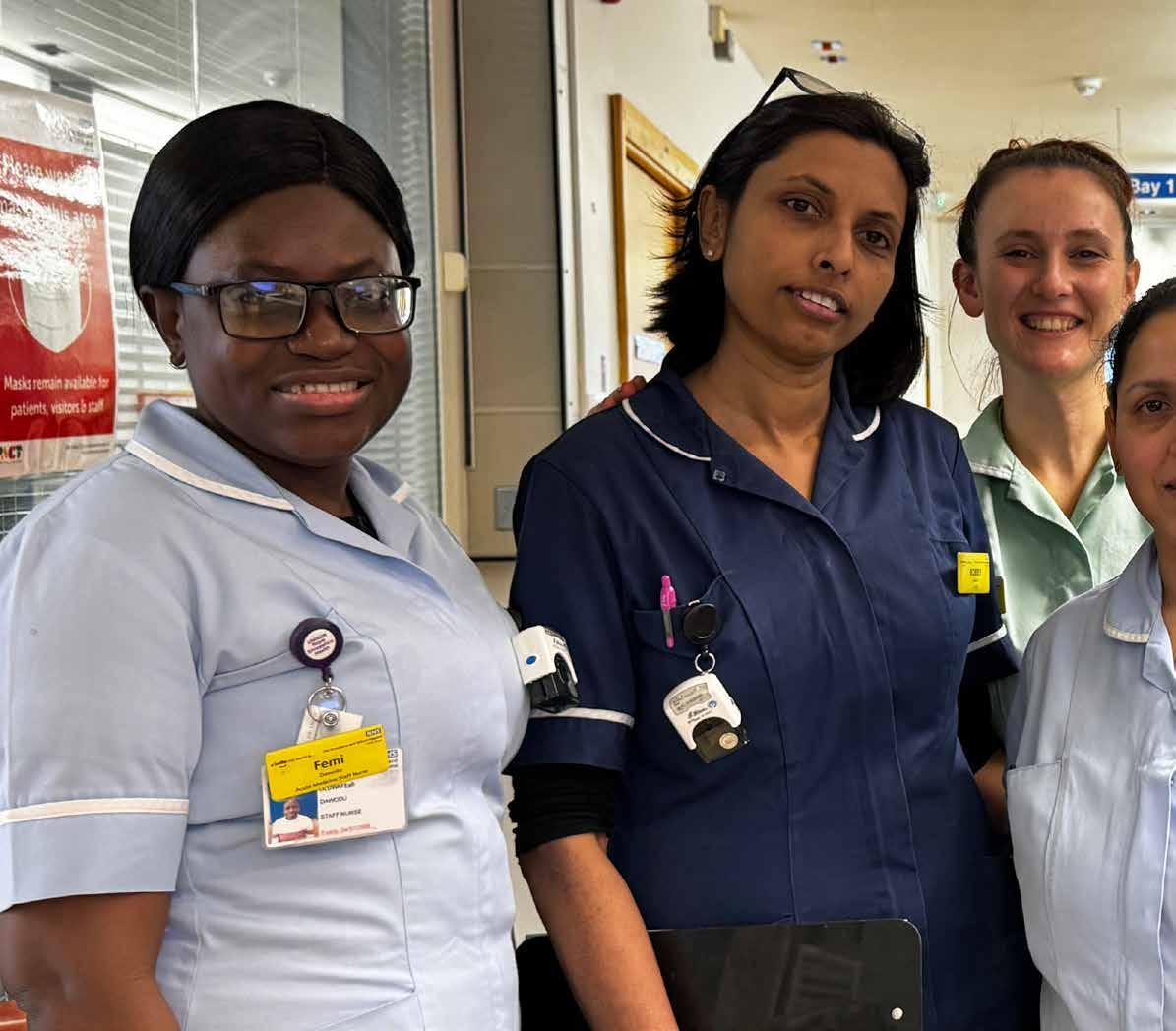
As a result, the Discharge Lounge at RSH has seen its weekly patient numbers increase from an average of 130 to 158 during a recent test of change week.
This change has also improved patient flow which means a better experience for our patients, with plans to roll out the model at PRH.
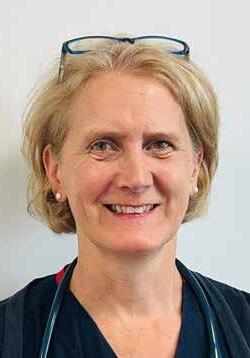
Dr Saskia Jones-Perrott,
Medical Director for Medicine and Emergency Care,
said:
“The success of the SDEC improvement programme is a direct result of the incredible dedication, hard work, and collaboration of the SDEC Team. Their commitment to ensuring that patients receive
the right care at the right time has transformed the service.
“Through their efforts, the SDEC service has not only improved patient journeys but also optimised hospital resources, allowing for faster discharges and reduced waiting times.
“They epitomise our Stronger Together ambitions, supporting our patients to have the best hospital experience.”



Our long-term ambition is to become a financially sustainable organisation, delivering safe, high quality services that are value for money.
A key objective in our Operational Plan for 2024/25 is to work within our financial allocation. This means making every penny count and using the resources we have as efficiently and effectively as possible.
This financial year has been challenging both for our organisation, the wider health and care system and the NHS as a whole. A huge amount of work has been happening in the Trust, across our divisions and corporate teams, to help us deliver our planned deficit position agreed with NHS England.
We have been making real progress and have seen some fantastic examples of teams working differently to improve care for patients, as well as reduce waste and inefficiencies. As a result, we are on track to deliver more savings than ever before. Some of these have been delivered through our cost improvement programme (CIP).
The CIP is a core part of our Operational Plan and sets out the level of efficiency savings that need to be achieved on an annual basis in order to re-invest in our services.
As a Trust, we delivered £8.2m of efficiency in 2022/23, £18.8m in 2023/24 and are forecasting delivery of £36.8m for 2024/25, which is a huge achievement. Additional measures to support the Trust’s financial position include:
• Recruiting substantive registered nurses and healthcare assistants to reduce the reliance on

temporary staffing in the Ambulance Receiving Area at PRH. Employing our own staff delivers continuous care for our patients, increases morale and also saves the Trust £0.4m in costs.
• Refocusing our resources on reduction of agency staff. Hard work across the clinical and operational teams has seen a consistent reduction, resulting in £15 million savings across nursing and medical staff groups. This has contributed to the increased delivery of cost improvement plans compared to previous years.
• Changing the way we recruit into vacancies with a focus on reforming roles rather than automatically replacing leavers. This means we have the right skill mix in place to meet our needs now and in the future.

“Our aim is to build on the work already being done to support our urgent and emergency care pathways, and enable teams to really look at what we can do to further improve our services, and the care we provide. Everyone has a role to play to help us to become a high performing organisation with a healthy future – and one that is financially sustainable. We can do this by being stronger together.”
We want every patient who uses our hospital services to have excellent care and the best experience, and this is at the heart of Stronger Together.
As we experience winter pressures, we are spending over our planned deficit of £44.3m, largely driven by high escalation costs, and continued expenditure on agency staff.
Through Stronger Together, we are asking for every member of staff to play their part to contribute to improve efficiency. This includes trying new ways of working to reduce waste in all areas and maximise their resources and planning rotas in advance to reduce reliance on agency staff.
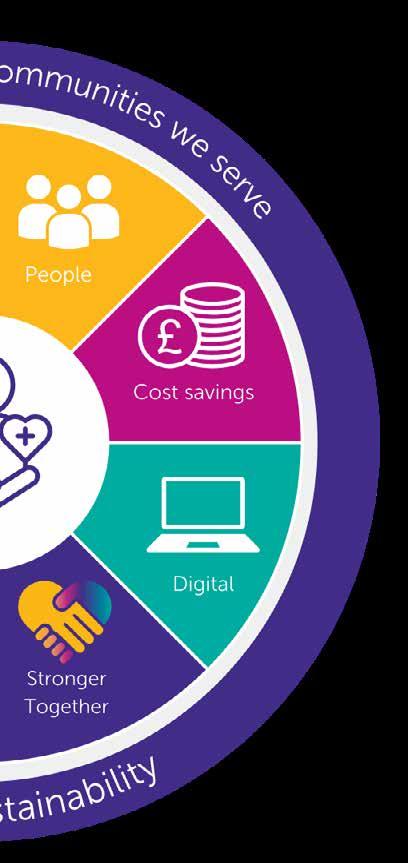
It is the right thing to do for our patients and also builds confidence in our services.
To support teams, a new Stronger Together Recovery Taskforce Team has been put in place. With representation from our clinical, financial and operational leads, they have the skills and knowledge of our organisation to support the delivery of improvements in quality, performance, productivity and also financial spend. They will enable teams to test new ideas and transform ways of working.
Every year we are making improvements and reducing waste and inefficiencies. Long term we know we need to fundamentally change the way we work to deliver our NHS Constitution targets and at the same time deliver financial balance. This includes:
• Reducing escalation for urgent and emergency care
Increasing productivity in our elective services
Building greener estates to reduce our energy costs
• Modernising our digital infrastructure
• Investing in a modern workforce
• Delivering the Hospitals Transformation Programme
It will take several years before we reach financial balance, and we will keep you updated on our progress.
In the meantime, you can help us to deliver our plan for 2024/25 and help us deliver what we promised.
Carol McInnes, Recovery Team Lead, said: “We want teams to continue to try new ways of working to improve quality in within their areas, and also think about every penny they spend. For example, if every colleague helped to save £100 in their areas, we are well on our way to becoming a more sustainable organisation.
“Becoming more efficient means we can invest in our patients, our people, our buildings and our equipment. It means we can tackle our challenges.”
The Trust has made a huge step change in the way it disposes clinical waste, which has significantly reduced its carbon footprint and made financial savings of £110,000.
This fantastic achievement has been led by the Trust’s Waste and Energy Manager, Mark Leighton, and has been supported by colleagues in many areas, including portering, cleanliness and housekeeping.
The NHS produces thousands of tonnes of clinical waste and the way it is disposed of has a huge impact on the environment and carbon emissions. It is also expensive. NHS organisations are required to comply with NHS E clicnial waste strategy and key targets.
To meet these national obligations, the Trust has put in place new processes to ensure its waste is being segregated more effectively, reducing the amount of waste classified incorrectly and going to incineration which has environmental and cost implications.
The target is to segregate waste with 20% going for incineration (yellow bag), 20% for alternative waste treatment (orange bag) and 60% for disposal as offensive waste (tiger bag).
Mark Leighton, Waste and Energy Manager, said: “Everyone across the Trust has a part to play in disposing of waste correctly, just as they would do at home. Not only is this better for the environment and the Trust’s green ambitions, it also reduces the cost of waste disposal.
“The improvements we have put in place have not only met the national compliance target two years early, they have also reduced the Trust’s carbon footprint and made financial savings.
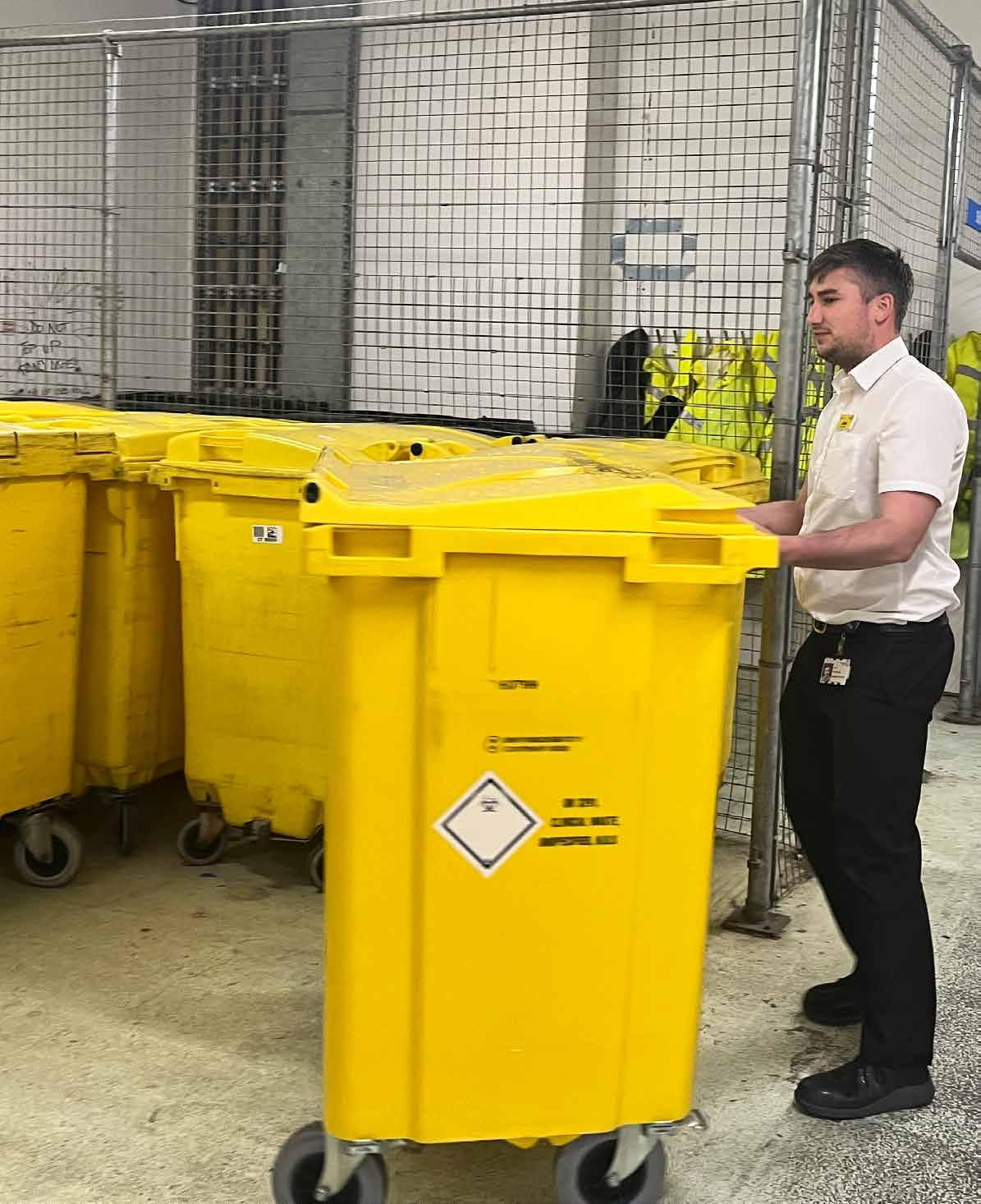
• The Trust has met and exceeded the 60% target since July last year
• At PRH, the target for disposal of offensive waste has been consistently exceeded since April last year and currently is at 85%
• At RSH, the target for disposal of offensive waste has been consistently met since October 2024 – going from 2% to 66% in one year
• The Trust has saved £110,000
• The Trust has reduced its carbon emissions by 31 tonnes – which is the equivalent of the electricity consumption of 20 average households for a year
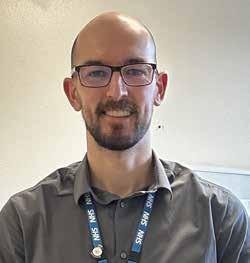
“This is a fantastic achievement, and I want to say a huge thank you to everyone who has supported this, including our porters, cleanliness technicians, housekeepers and clinical teams. As without their commitment, this would not have been as successful, as it has been.”
Mark Leighton, Waste and Energy Manager
Our Finance Team is working alongside the rest of the organisation to deliver more efficiencies than ever before and is instrumental in making positive progress across the Trust.
The team has strong focus on staff morale and wellbeing to ensure everyone feels valued. Scores from last year’s NHS Staff Survey showed the finance team to be the seventh most improved in the country.
Among their success stories are achieving HFMA Level 2 Future-Focused Finance status and expansion of their studying cohort and apprentice numbers to 12.
The team was also crowned winner in not one, but two categories, in the Healthcare Financial Management Association (HFMA) Awards. They won Finance Team of the Year and the Havelock (Training) Award.
The awards cover the production of the accounts,
costing, governance, training and development, as well as innovation. Crucially, given the importance of spreading financial awareness outside of finance departments, the awards also focus on the importance of engaging clinicians in financial management.
Adam Winstanley, Deputy Director of FinanceOperational, said: “We never say ‘that’s enough’. Instead we ask ‘what’s next?’ and push onwards. It’s all about patient care and the team never forgets that.”
Helen Troalen, Director of Finance, said: “I am bursting with pride as the Finance Team has won these two prestigious awards. They work their socks off day in and day out whilst also creating space for development and growth.
“We have amazing support from our clinical and operational colleagues and leaders who really care about value and how we use our finite resources.”
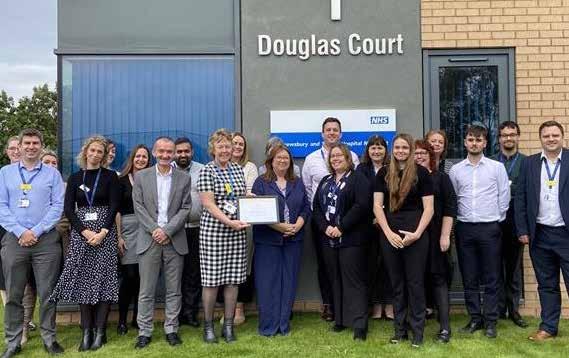
Reducing the amount of time our patients are waiting for their planned care is a key priority in 2025 and beyond.
We are making progress on our elective recovery programme – which is one of the core objectives in our Operational Plan. Clinical teams within all specialties are working hard to reduce the number of patients waiting over 78 and 65 weeks. Our next milestone is 52 weeks which again we are working hard to achieve.
Our Patient Access Team remains in regular contact with all patient who are currently on our waiting list. Robust processes are in place for patients who no longer wish to receive their treatment.
Our Planned Care Hub opened on 10 June 2024 and since then we have treated more than 2,000 patients. We continue to receive excellent feedback on this purpose-built facility, which is making a huge difference to the experience of patients and colleagues.
We are working with NHS England to improve our throughput and theatre utilisation and have appointed two clinical leads, Dr Sai Annadurai, Consultant Anaesthetist and Mr Saurav Chakravartty, Consultant Upper GI & Bariatric Surgeon, from 1 January 2025 to support us on our improvement journey to being accredited.
Orthopaedic joint replacement surgery has resumed at PRH, with hip replacement operations being reinstated first, followed by knee replacement surgery.
We have also introduced a new enhanced recovery pathway, which with new surgical and anaesthetic techniques enables patients to walk within hours of
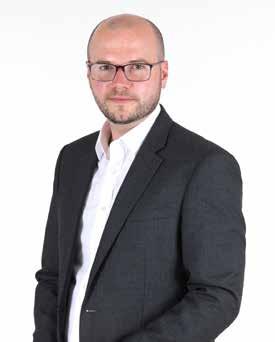
surgery and to return home sooner. Many patients have been discharged on the day after the surgery, whereas previously most patients stayed an average of four days.
Patients in other specialties are also making quicker recoveries from their procedures thanks to robotic assisted surgery, which is a type of minimally invasive (keyhole) surgery that our surgeons began performing in June 2023.
To date, it has been used to operate on over 200 patients and has reduced the length of time patients spend in hospital following complex pelvic operations for cancer and non-cancerous conditions. Around 80% of patients having a robotic hysterectomy go home the same day following their surgery, and 95% go home within 24 hours.
Development and investment in our surgical teams are key to increasing our capacity to support the elective recovery programme. Our Theatres Academy launched in September 2023 and has seen 40 colleagues undertake a range of apprenticeships and leadership programmes, with a fifth cohort planned for February 2025.
This ‘grow our own’ approach is helping to fill key vacancies, increase capacity within the department, and provide better care for patients. Feedback from colleagues has been hugely positive, with many saying that they feel more supported and valued in their roles.
“It is wonderful news for our patients and the Trust that planned orthopaedic surgery has resumed at PRH. I would like to thank the many teams for their support and understanding during this time and to teams across the Trust who have worked so tirelessly to get the service back up and running. An extensive amount of work has had to take place with a complex set of ward moves to provide a suitable environment for patients having elective orthopaedic procedures to recover following surgery.”
Ned Hobbs, Chief Operating Officer
• 2,188 patients have been treated in the Planned Care Hub
• 200+ patients have so far had robotic assisted surgery
• 40 colleagues have been through the Theatres Academy DID YOU KNOW...

Mr Adam Farquharson, Consultant Colorectal Surgeon, said: “Robotic assisted surgery allows us to perform major complex operations for bowel, prostate, kidney and women’s health conditions giving patients a faster recovery. This means they can return to normal activity or move to their next stage of treatment quickly and is less invasive.
“As well as benefitting our patients, robotic assisted surgery has generated a lot of enthusiasm in the Trust, and we now have an expert theatre team that does all the robotic surgery cases. We enjoy training the medical and nursing staff and it has attracted high calibre consultants to join us to work at the Trust. It really is an exciting time.”
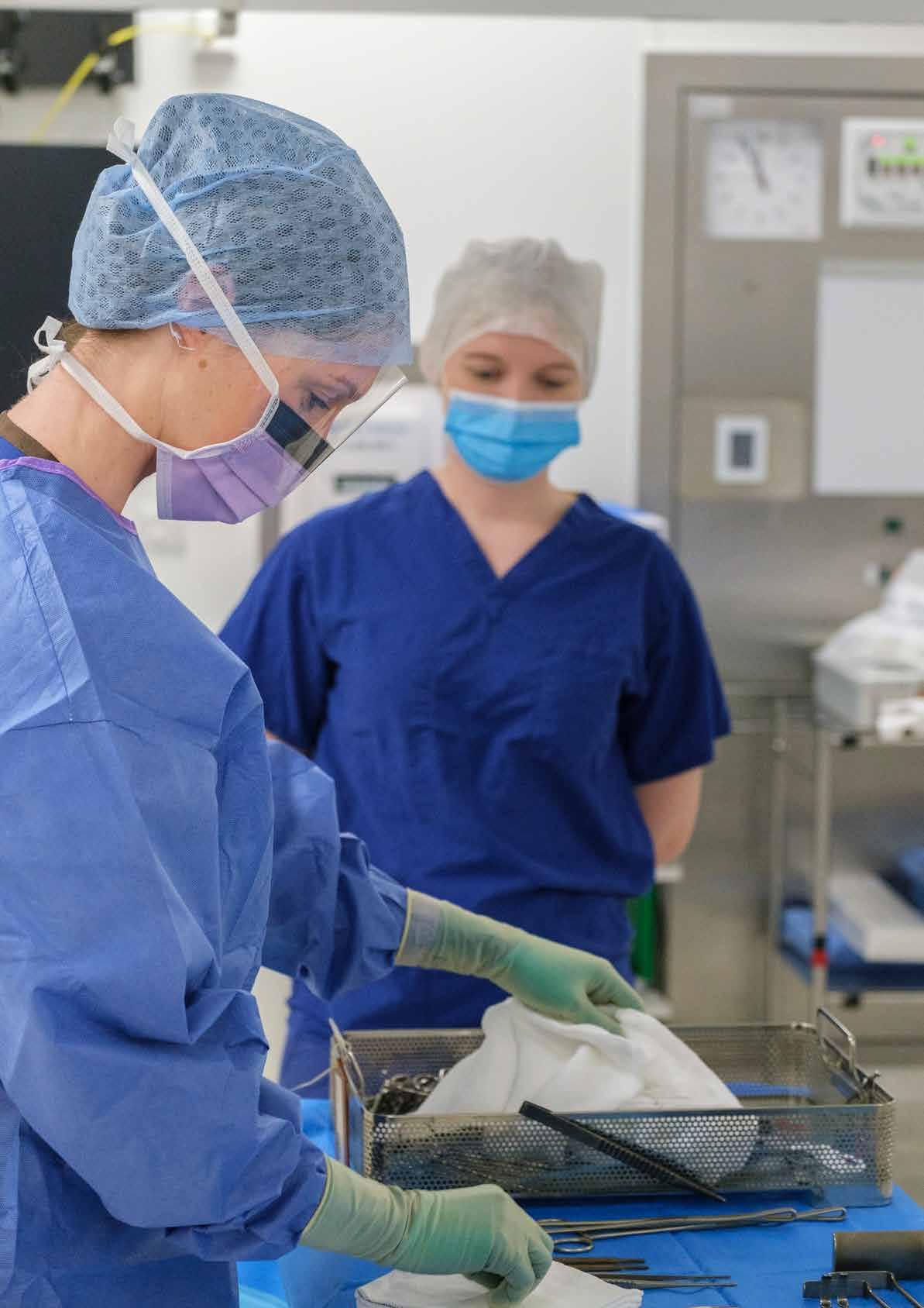

One of our key priorities is providing high quality care for people living with diabetes when they are being cared for in our hospitals.
The number of people with diabetes continues to grow in Shropshire, Telford and Wrekin. Diabetes is a condition that causes a person’s blood sugar level to become too high and can cause foot and eye problems if left untreated.
Our hospital teams are being provided with the tools and knowledge they need to provide effective care for patients with diabetes during their hospital stay.
We are also working closely with our system partners to improve preventative care in the community and empower those with diabetes to manage their own health and prevent unnecessary hospital admissions.
These quality improvements are being driven by the hospital’s Diabetic Specialist Team, led by a new diabetes lead nurse.
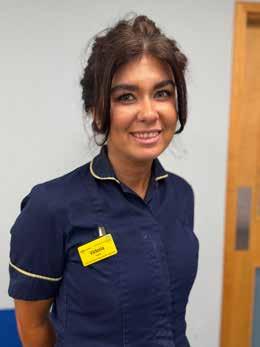
Victoria Wilkes started as the Trust’s Diabetes Lead Nurse last year and is working on increasing awareness through education for colleagues, patients and our community partners, to ensure the best care and clinical outcomes
for our diabetic patients. To support colleagues, Victoria visits the wards to bring training directly to those who need it.
Victoria said: “We appreciate that it is sometimes hard for colleagues to leave their wards for training, so we bring the training to them.
“We know that diabetes patients can sometimes struggle in the artificial environment. They are not moving about as much; they are eating different foods and sometimes not as much food as they would at home. They are poorly too, and all of these factors can affect their blood sugar and cause it to drop too low, known as hypoglycaemia.
“It means a normally stable diabetic patient can suddenly have a lot more variability in their blood glucose levels which leads to needing more intervention from the Diabetes Team.
“We want all our colleagues to understand how to treat them as we know this can improve their care and reduce their length of stay. This is really good news for our patients as they will be spending less time in hospital and can go home which is much better for their recovery.”
Rhia Boyode, Director of People & OD
The Diabetic Specialist Team is also supporting hundreds of community patients who are using insulin pumps –an electronic device that delivers insulin to the body to treat diabetes. They give patients access to the latest information about insulin pumps. They also support patients on the importance of diet.
The team is also helping to increase the skills of community partners to alleviate the pressures on the hospitals, through free educational sessions for GPs, community nurses, doctors, podiatrists, dieticians and practice nurses.
Victoria said: “Supporting our community partners on how to initiate insulin safely, foot care, the referral process and information about pump technology will lead to more patients being seen in the community and empower patients to have more control and better management of their diabetes.”
Improving the care, and the health outcomes, of patients living with diabetes, is one of our nine quality priorities.
Delivering these priorities is part of our overarching strategic plan to deliver a positive experience for all our patients in this financial year.
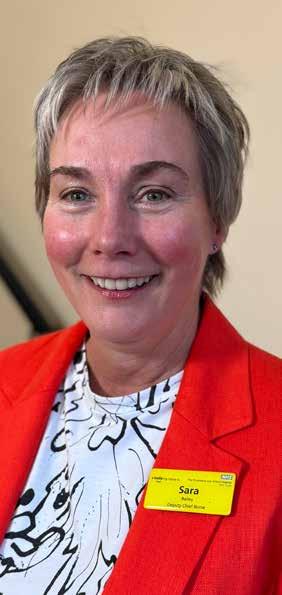
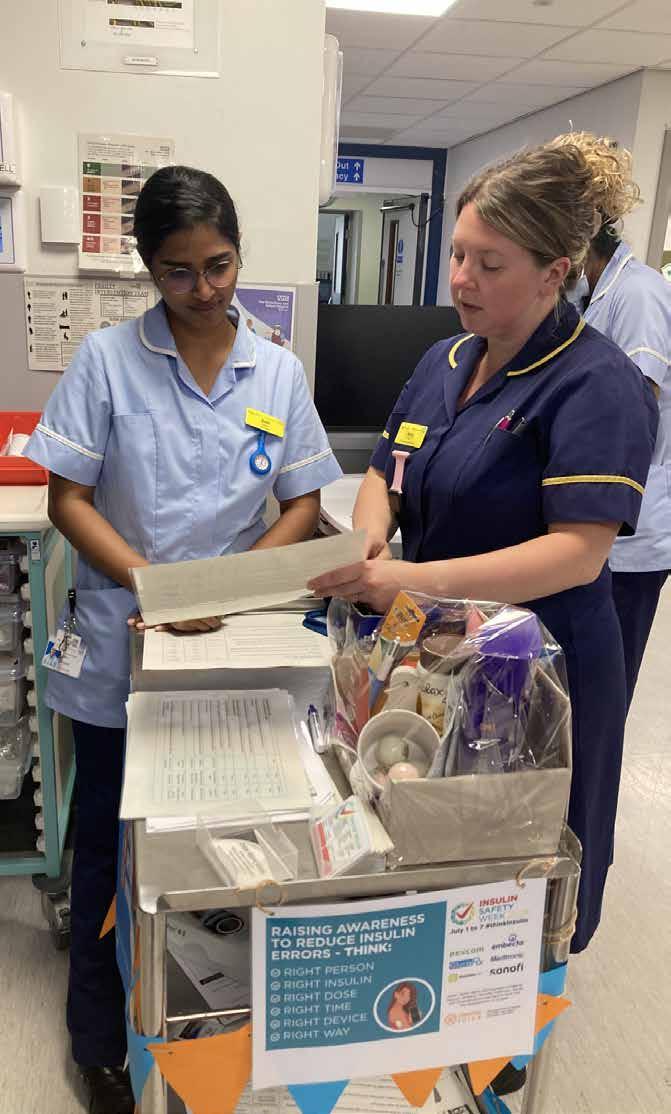
More than 32,500 people in Shropshire, Telford and Wrekin live with diabetes; around 7% of people live with type 1 diabetes and around 93% with type 2 diabetes. DID YOU KNOW...
“We are looking at a preventative model of care out in the community, so our patients with diabetes don’t need to come into hospital unecessarily. The work the team is doing, the innovation and passion, are beginning to translate into real improvements, making a difference to our patients and starting to change the culture around diabetic care. Education is at the centre of these improvements.
“Our colleagues and system partners play an important part in early diagnosis, stabilising diabetes in inpatients, spotting diabetic foot ulcers and following the correct referral processes.We now have a diabetes nurse lead in post to drive forward these improvements which is a positive step forward and shows the ambition of the Trust in achieving its objectives with regards to diabetic care.”
Sara Bailey, Deputy Chief Nurse for Quality
Our digital transformation is essential to delivering more modern healthcare and improving quality of care for our patients.
We are in the second phase of the rollout of our multi-million digital transformation programme across the organisation.
The digital upgrades will enable our organisation to deliver excellent care for our patients.
Last year, the Trust undertook a major digital transformation programme and changed the patient administration system (PAS) from the 20-year-old SemaHelix system to CareFlow.
CareFlow PAS has provided the Trust with the foundations to introduce other, innovative systems that the previous PAS system did not support. This includes our new Patient Portal called DrDoctor.
DrDoctor has been shown to reduce the number of missed appointments and improve waiting list efficiency. It enables our teams to fully utilise clinic availability, improve elective service pathways and streamline patient experience.
• Access to digital letters
• Basic rescheduling (allowing patients to inform us if they need to reschedule)
• Notifications
DrDoctor will be rolled out to patients in different phases. The first phase will allow patients to notify us if they are unable to make their appointment via the portal. The aim is to improve ‘did not attend’ (DNA) rates by up to 30% as patients will be able to do this quickly and easily at their convenience.
For a Trust with 600,000 annual outpatient appointments, this would equate to approximately 11,500 extra outpatient appointments attended per year - equivalent to £1.4 million in annual savings.
Another feature within the portal, which will be introduced at a later date, will be ‘quick question’. This will allow the Trust to send out individual questions to selected groups of patients to get a fast and easy response.
An example of a ‘quick question’ would be asking the patient if they still require their appointment. This simple feature has been rolled out at other trusts and has shown to reduce overall waiting lists by approximately 1.4%.
The DrDoctor project will begin with a pilot in the Trust’s Ear, Nose and Throat (ENT) department.
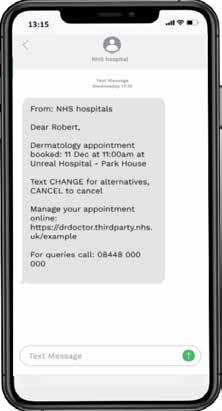
Dr Sevina Tzortzis, ENT Consultant, said: “DrDoctor is great news for our patients. This digital engagement platform will allow patients to receive digital letters and have more control over their appointments.
“It will improve communication with our patients and reduce unecessary phone calls to rearrange apopoinments.
“The portal will also enable departments to have more visibility of the clinic capacity in real time. This will improve clinic utiliatsion and reduce the number of patients waiting for appointments.”
Further roll-out of the portal is anticipated later this year.
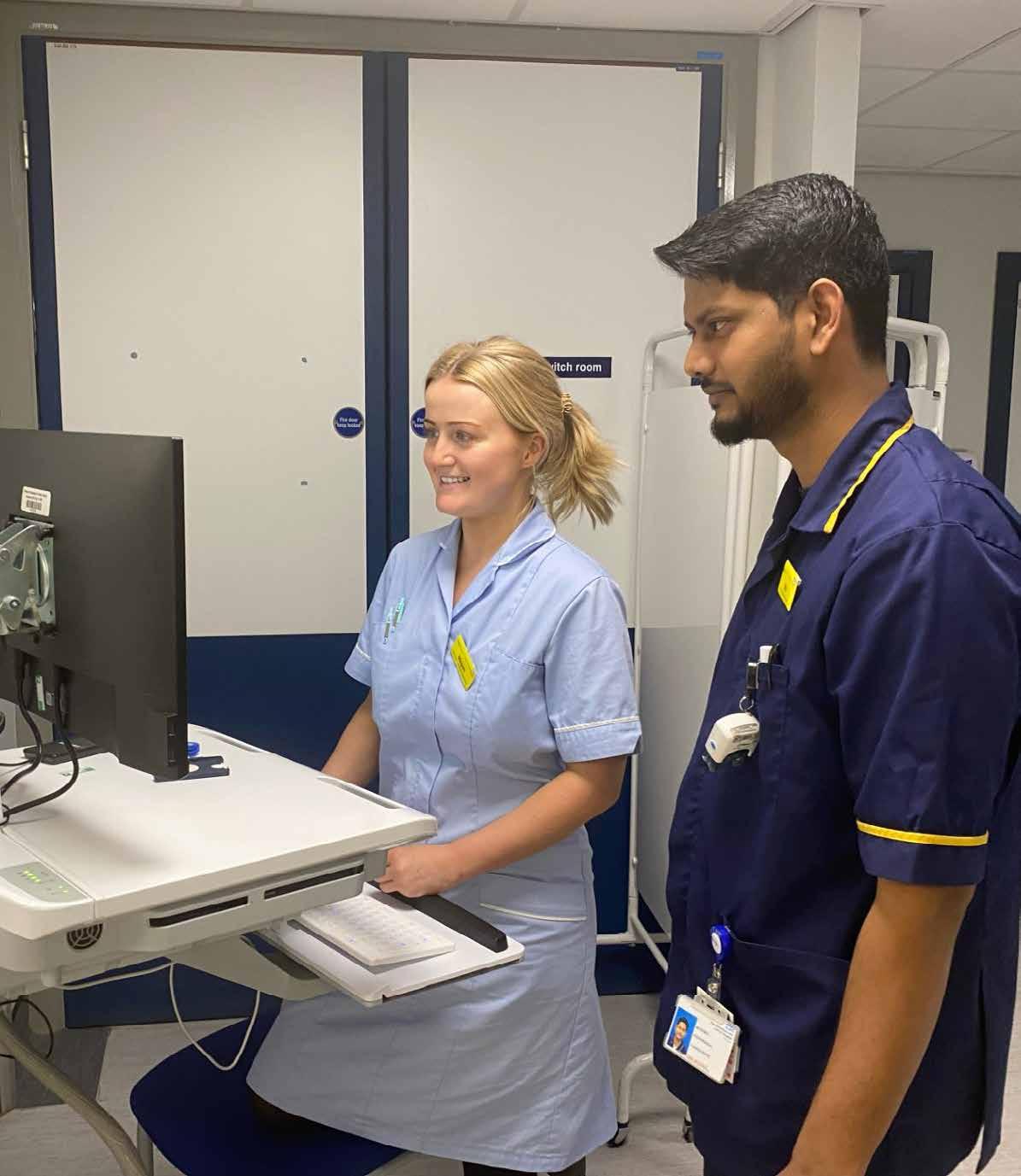

“Our digital transformation programme will provide modern systems that will transform how our clinicians work so we can deliver the best care and the best experience possible for our patients. The launch of DrDoctor is the next step on this exciting journey and will give patients much more control of their care and provide a better hospital experience.”
Rebecca Gallimore, Director of Digital Transformation
Our people are our most valuable asset, and a key priority is to build a sustainable workforce so we can deliver high quality care for every patient now and in the future.
In our People Strategy, one of our objectives is ‘growing for the future’, with a focus on increasing alternative routes into roles in the Trust as well as improving our culture to support our staff and increase retention.
We have developed our wider participation offer and employability schemes for our communities to support local people into NHS careers.
We are committed to bringing new colleagues on board through a variety of training programmes to fill roles, upskill our staff and provide paid learning on the job, so we can continuously improve the care we provide our patients.
The number of apprenticeships on offer and alternative routes into professional roles has grown, including Volunteer to Career, preceptorships and the Healthcare Support Worker Academy.
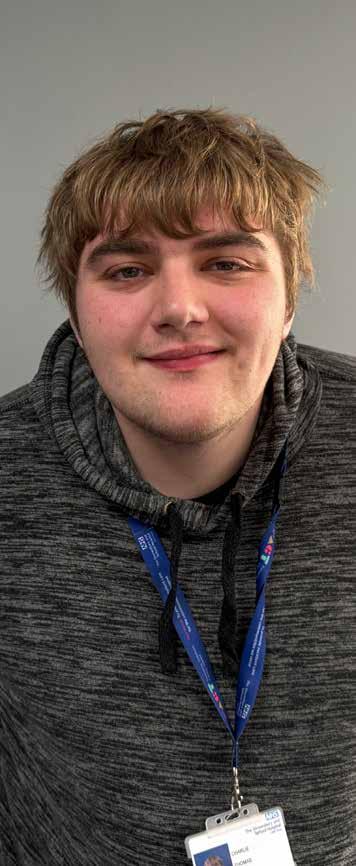

We have also partnered with DFN Project Search and Shropshire Council to offer young people with learning disabilities and autism the opportunity to gain valuable work experience and paid employment in a wide variety of areas across the Trust including catering, housekeeping, pharmacy, pathology and radiology.
According to DFN, the project has demonstrated that young people with learning disabilities and autism can enrich the workforce, as well as bring their incredible skills and talent, and encourage greater diversity. To date, the programme in Shropshire, Telford and Wrekin has achieved an average employment rate of 60%, compared to the national average of 6% for people with learning disabilities and autism.
Charlie Thomas is in the second cohort and started his DFN journey at SaTH in September 2024 after college.
He is undertaking three rotational placements across the Trust in teams including communications and portering.
Charlie said: “I wanted to do something that I’ve never done before. Since starting the programme my confidence has increased, and I have loved every minute of it so far. I’ve learnt all about time-keeping, communication skills and even practical skills like how to safely push a wheelchair.
“I would encourage anybody to consider the programme. Everyone at the Trust is friendly and helpful and are supporting me to be ready for a job at the end of it. My
dream would be to get a job as a porter, and I think the programme is helping me to gain the skills I need.”
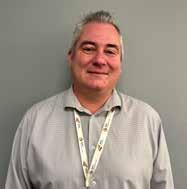
Tom George, Shropshire, Telford and Wrekin Integrated Care System Education & Learning Lead, said: “Our brilliant interns are role models as ambassadors of change, advocates for inclusion, and trailblazers for the future generation.
“They have shown commitment, passion, and excellence in delivering high-quality solutions for our patients and colleagues.”
Our first cohort of interns finished in the summer of 2024. They all graduated as jobready with some securing paid employment at the Trust, including Lauren Clarke, who is now a porter at Royal Shrewsbury Hospital. Lauren completed the programme after undertaking rotations in catering and portering.
Lauren said: “The internship has been life changing. It has given me the skills and confidence to take on full time employment and I feel so lucky to have been part of it.
“I absolutely loved my rotation in portering, and it felt too good to be true when a role came up. I was nervous about doing an interview, but the DFN Team supported me with my preparations, and I was thrilled to be given a job. I love coming to work every day and love knowing I am making a difference for our patients.”
Ali Beshir, Portering & Logistics Manager at RSH, said: “Lauren came into our team and hit the ground running with ideas and enthusiasm. She has had a hugely positive impact on the team. We are so proud to have her in our team.”
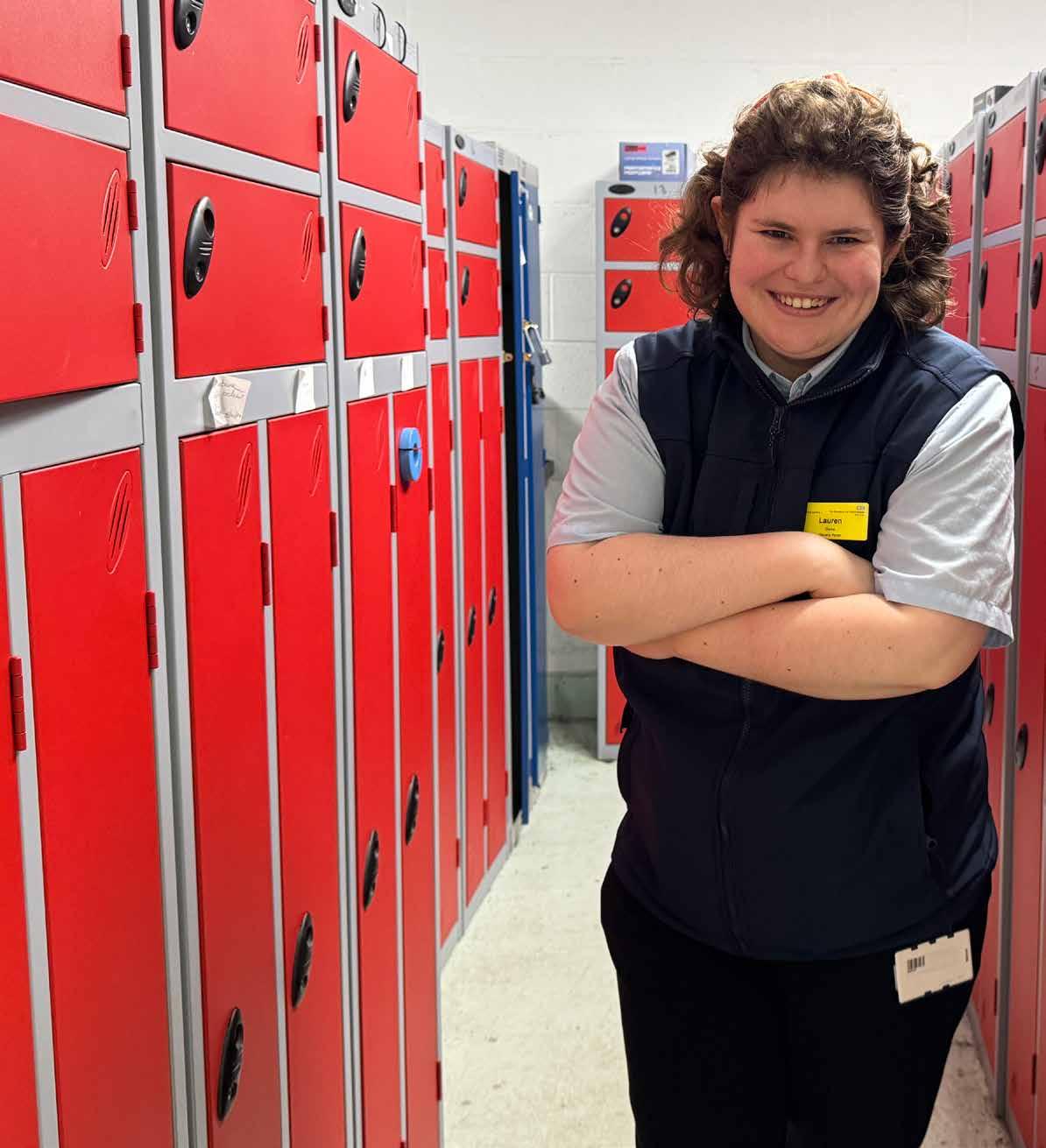
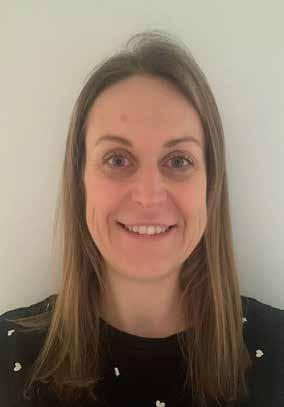
“With national skills shortages of roles across the NHS it is increasingly challenging to recruit colleagues with the right skills to match our requirements. Our focus will continue to be on developing our own pipelines of talent and working with local partners to address our long-term workforce needs. Fundamental to our plans is strengthening an inclusive culture of diversity, innovation, and continuous improvement to support us in delivering outstanding care for our patients.”
Emma Wilkins, Interim People Director
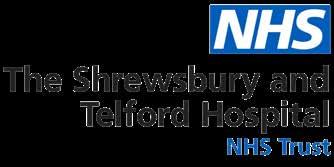
In our next edition we will be focusing on:
• How we are Learning from patient experience
• Our journey to financial balance
• Timely care for patients on a cancer pathway
• Urgent and emergency care for our young patients
• Becoming a greener and more sustainable organisation
